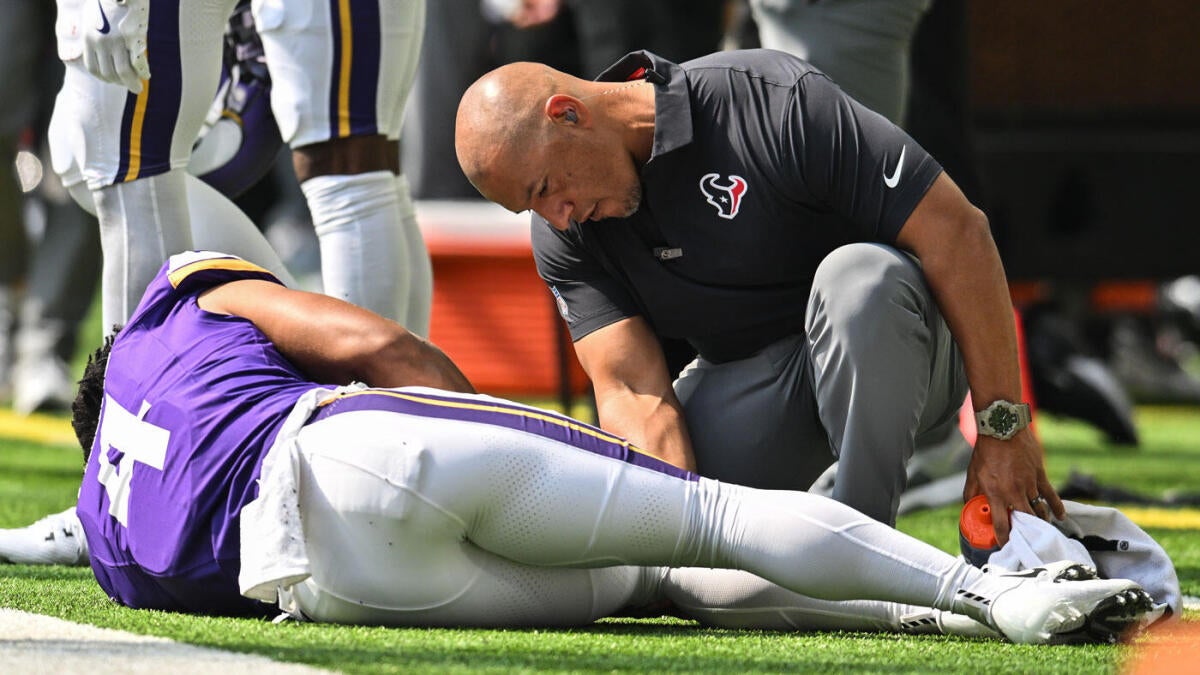Coach Kevin O'Connell described the injury as 'heartbreaking'
Why it matters
- Rondale Moore's injury could have major implications for the Minnesota Vikings' offensive strategy moving forward.
- The severity of the knee injury raises concerns about player availability as the regular season approaches.
- This incident highlights the risks associated with preseason games and the potential for unexpected player setbacks.
In a recent preseason matchup against the Houston Texans, the Minnesota Vikings faced a disheartening situation as standout wide receiver Rondale Moore suffered a substantial left knee injury. Following the game, head coach Kevin O'Connell expressed his deep disappointment regarding the injury, calling it 'heartbreaking' for both the player and the team. The Vikings had high hopes for Moore, who was anticipated to play a pivotal role in their offense this season.
The incident occurred in the first half of the game, during a play where Moore was attempting to make a catch. As he landed awkwardly, it was clear that he was in considerable pain, prompting immediate attention from the medical staff. Despite the team's efforts to assess the injury on-site, initial reports indicate that the knee issue is more serious than a simple sprain, with concerns of potential ligament damage.
Moore, a promising talent, was acquired by the Vikings as they sought to bolster their receiving corps. His ability to stretch the field and create mismatches against defenders was expected to be a significant asset for quarterback Kirk Cousins. The loss of Moore, even temporarily, could force the Vikings to adjust their offensive plans, especially as they head into the crucial weeks leading up to the regular season.
In the wake of Moore's injury, the Vikings must now evaluate their options for filling the void left by his potential absence. With veteran receivers already in place, the coaching staff may have to lean on younger talents or shift the roles of existing players to compensate for the loss. This situation may also open the door for other receivers to showcase their abilities, possibly impacting the team’s roster decisions as they finalize their lineup for the season.
The Vikings have been focusing on building a formidable offense, and the integration of Moore was a key part of that strategy. His speed and agility are qualities that the coaching staff believed would enhance the team's dynamic. Coach O'Connell's remarks reflect the sentiment shared by many within the organization as they grapple with the uncertainty of Moore's recovery timeline.
As the team awaits further medical evaluations, fans and analysts alike will be closely monitoring any updates regarding the severity of the injury. The Vikings, who are aiming for a strong performance in the upcoming season, now face the challenge of maintaining momentum despite this setback. Moore's injury not only impacts the Vikings' game plan but also serves as a stark reminder of the unpredictability of injuries in professional football, particularly in the high-stakes environment of preseason games.
In addition to the immediate effects on the roster, the Vikings will need to consider their long-term strategy regarding player health and safety. Injuries during preseason can not only disrupt individual players' seasons but can also impact team chemistry and performance as the regular season unfolds.
As the Vikings move forward, they will undoubtedly keep Moore's well-being at the forefront of their decisions, balancing the need for a competitive edge with the imperative of ensuring player health. The organization has a history of navigating injury challenges, and this incident will test their resilience as they prepare for the upcoming season.
In summary, Rondale Moore's significant knee injury during the preseason against the Texans has created a ripple effect within the Vikings organization. With the head coach expressing deep concern and the team facing tough decisions ahead, all eyes will be on Moore's recovery process and how the Vikings adapt their strategy in his absence.











